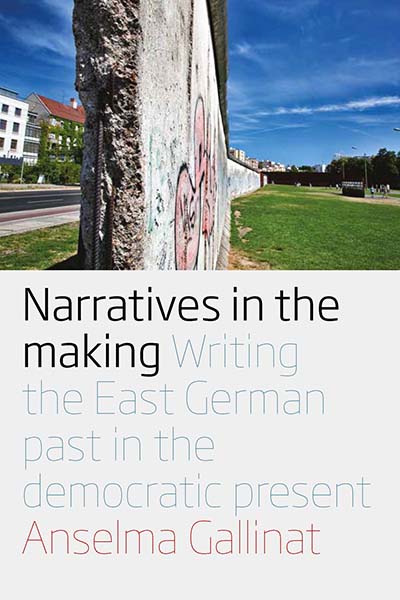“Anselma Gallinat’s book represents an important contribution to the anthropological study of post-socialism, and to its application to memorial and museum studies.” • German Politics
“This insightful book transcends concerns with the postsocialist transformation or German practices of commemoration. It investigates a political moment, in which power and historical knowledge of the socialist past are being recalibrated with regard to potentially threatening futures. It contributes to the anthropology of postsocialism, linguistic anthropology, media studies and German studies, whilst inviting further explorations of the state of democracy and citizenship in the post-Cold War era.” • Ethnos
“…a fascinating and thoughtful ethnography of Eastern German government and media institutions and perspectives … which will interest advanced students and scholars in history, political science, anthropology, and media and cultural studies… The book succeeds as a carefully designed, balanced, and executed study, providing convincing evidence from multiple memory intermediaries.” • American Historical Review
“Gallinat suggests the importance of competing narratives, not to downplay the experience of suffering under the SED regime, but, by producing a more nuanced picture, to honor those who lived through it.” • German Studies Review
“This important and timely study offers fascinating insights into the behind-the-scenes production of public narratives. It makes a significant contribution not only to anthropological studies of socialism and post-socialism, but also to the exploration of these public discourses in museum studies and other disciplines.” • Sara Jones, University of Birmingham
Despite the three decades that have passed since the fall of the Berlin Wall, the historical narrative of East Germany is hardly fixed in public memory, as German society continues to grapple with the legacies of the Cold War. This fascinating ethnography looks at two very different types of local institutions in one eastern German state that take divergent approaches to those legacies: while publicly funded organizations reliably cast the GDR as a dictatorship, a main regional newspaper offers a more ambivalent perspective colored by the experiences and concerns of its readers. As author Anselma Gallinat shows, such memory work—initially undertaken after fundamental regime change—inevitably shapes citizenship and democracy in the present.
Anselma Gallinat is a Reader in Social Anthropology at Newcastle University. She is the co-editor of The Ethnographic Self as Resource with Peter Collins (Berghahn 2013) and the author of numerous articles, which have appeared in Identities, Social Anthropology, and Ethnos, among others.
LC: DD281.6 .G35 2017
BL: DRT ELD.DS.152344
BISAC: HIS014000 HISTORY/Europe/Germany; SOC002010 SOCIAL SCIENCE/Anthropology/Cultural & Social
BIC: HBJD European history; JHMC Social & cultural anthropology, ethnography


